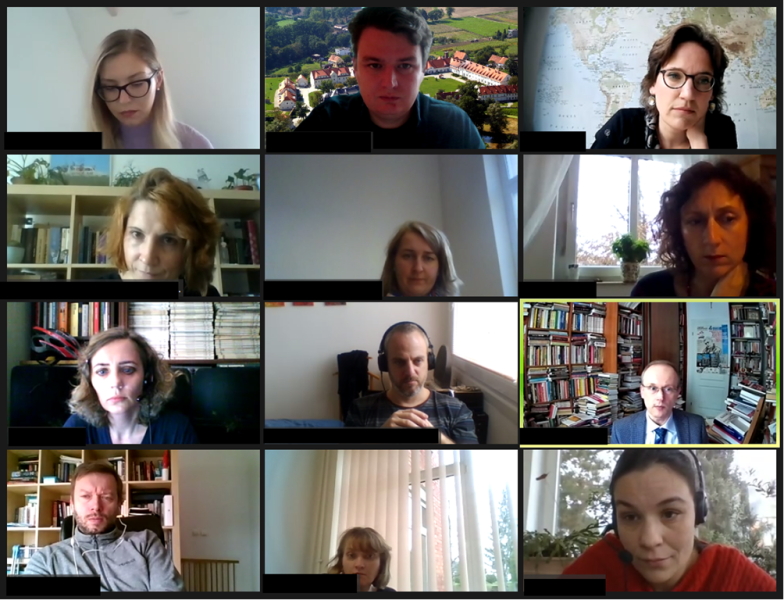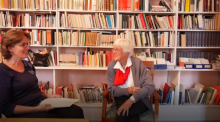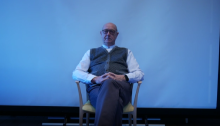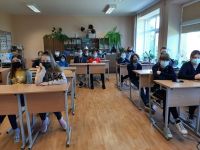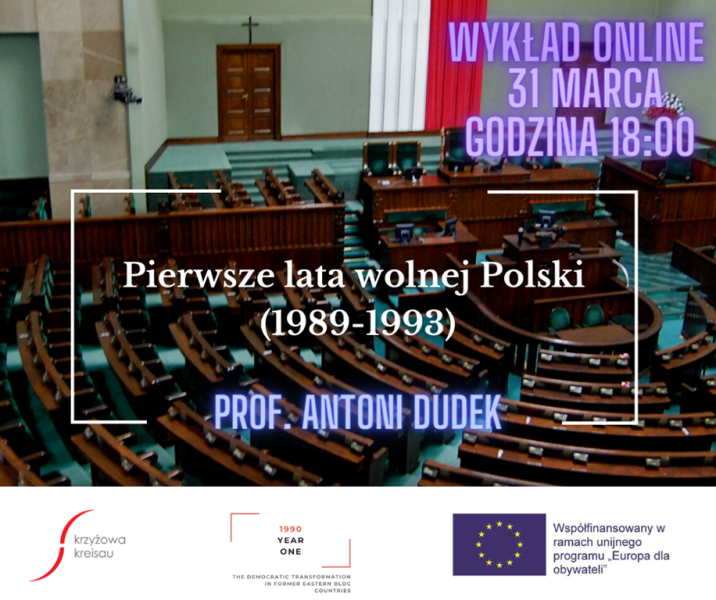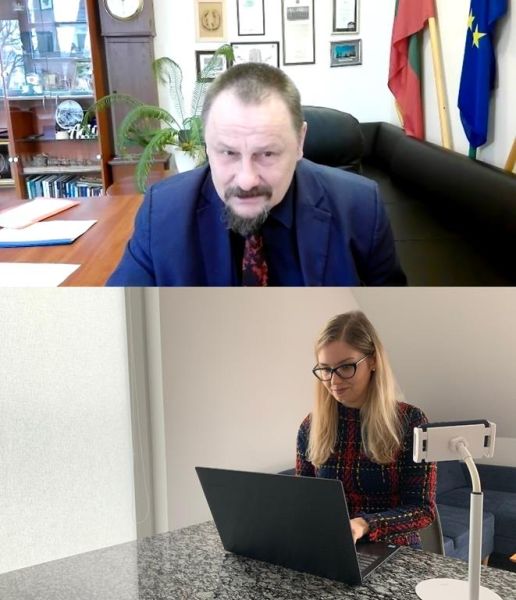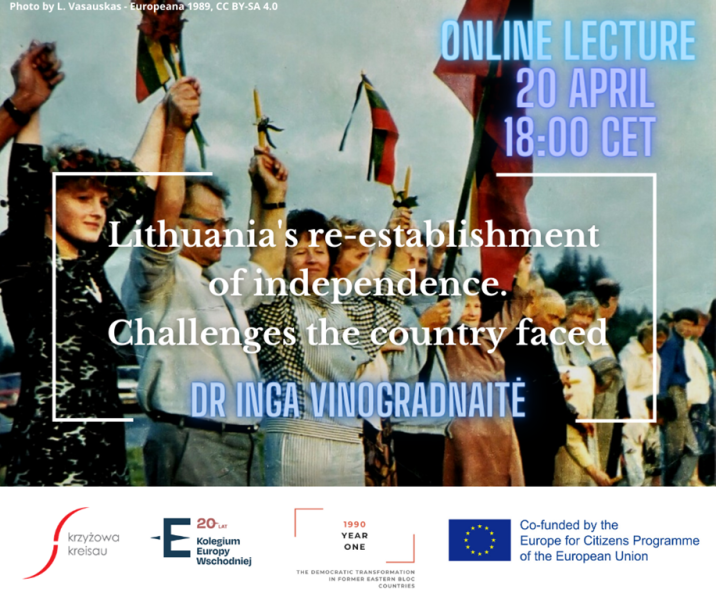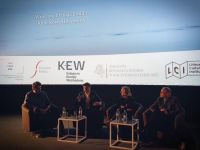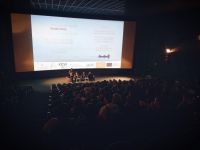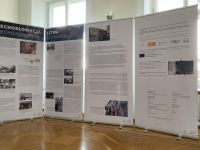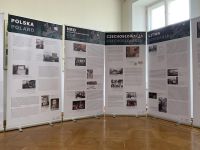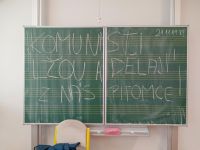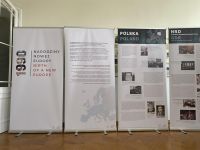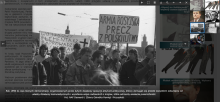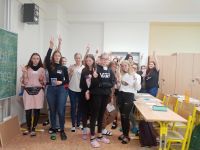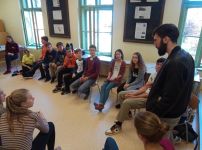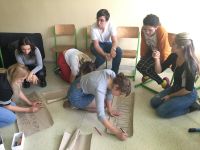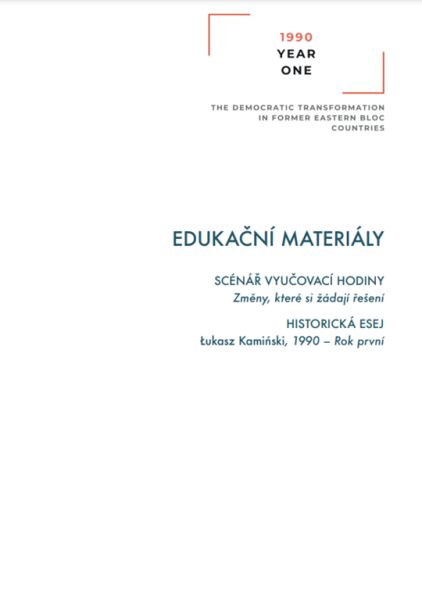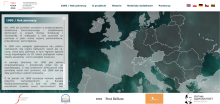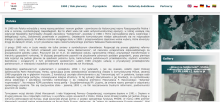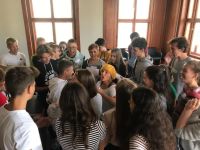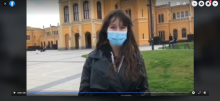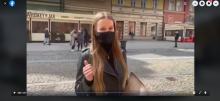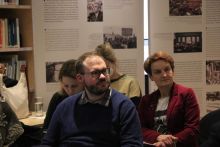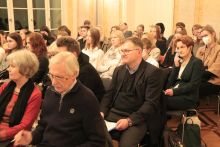 The year 1990, its significance and presence in our memory
The year 1990, its significance and presence in our memory
The year 1990 was a turning point in overcoming the communist legacy and shaping democracy in the countries of Central and Eastern Europe. In most of them, it brought the first completely free parliamentary, presidential and local government elections.
The year 1990 also marked the reunification of both German states. For the Baltic states, such as Lithuania - the first country in the region to declare its independence after 50 years of dependence on Soviet power - it was the beginning of a new era.
The Europe that we know nowadays was being born in 1990.
A little over 30 years have passed since the historic breakthrough, when democratic and free-market changes began with the fall of communism. Still, as a society, we know far too little about these events. From a historian's perspective, this is too short a time span to begin serious research, whilst political scientists are more inclined to say that this is way too distant a past and should therefore be the domain of... historians. The layout of the history curriculum in secondary schools also turns out to be unfavourable for the promotion of knowledge about that period. The events of the last decade of the 20th century are placed at the very end of the history education cycle. As a result of this, more often than not, teachers do not manage to cover this material before the end of the final year.
As a consequence of all these circumstances (and because they are different phenomena which are independent of each other) another generation of people is now entering adult life without having - and because of their age could never have had - any personal, biographical experience of the time of the breakthrough, nor did they even acquire school textbook knowledge on the subject.
It is important to ensure that the remembrance - as well as the knowledge - of this important period is restored.
Project objectives
The aim of the “1990 / Year One” project is to:
- to understand and raise awareness of the changes that have taken place in (and since) 1990 in three neighbouring countries (forming a specific border region): Poland, Germany and Czechoslovakia, and Lithuania as pars pro toto of the Baltic countries,
- to raise awareness of the political, social and economic changes that were the result of overcoming the communist past, and how the historical conflicts and new disputes that erupted in the context of national minorities (who were denied their rights by the communist authorities) were dealt with,
- to make this knowledge available to all those interested, especially young people, with an indication of the lessons we modern Europeans can learn from this history.
Participants and people involved in project preparation
Participants in the project included school youth, teachers, historians, experts in public history, historical and civic education and witnesses of the time from Poland, Czech Republic, Germany and Lithuania.
Project partners
The project “1990 / Year One. The democratic transformation in former Eastern Bloc countries” is an international educational project carried out in Poland, Czech Republic, Germany and Lithuania by five independent civil society organisations with a daily interest in promoting knowledge about the past and in historical and civic education:
- Krzyżowa Foundation for Mutual Understanding in Europe (Poland),
-
Paweł Włodkowic Institute (Poland),
-
Post Bellum (Czech Republic),
-
Stiftung Adam von Trott, Imshausen e.V. (Germany),
-
Anykščių švietimo pagalbos tarnyba (Lithuania).
Time and place of the project
The project “1990 / Year One. The democratic transformation in former Eastern Bloc countries” was implemented from 2/11/2020 to 31/12/2022 in Poland, Czech Republic, Germany and Lithuania within the framework of the Europe for Citizens Programme - Strand 1. European Remembrance programme and is co-financed by the European Commission.
Five events were implemented as part of the project
Event 1: Project partner meeting and workshop for schools
Participation: 110 citizens participated, of which 101 were from Poland, 3 from Czech Republic, 3 from Germany, 3 from Lithuania.
Place/Date: The event took place online and lasted from 12/11/2020 to 13/11/2020.
Brief description: On 12 and 13 November 2020, the first meeting of the project partners took place. It was attended by representatives of Krzyżowa Foundation for Mutual Understanding in Europe, Paweł Włodkowic Institute (Poland), Stiftung Adam von Trott, Imshausen e.V. (Germany), Post Bellum (Czech Republic) and Anyksciu svietimo pagalbos tarnyba (Lithuania).
During the meeting, history and public history experts from Poland, Germany, Czech Republic and Lithuania discussed historical policy and civic action in the field of collective memory formation, methodology and the division of tasks they will jointly carry out within the project.
Parallel to the partners' meeting, the first training workshop was organised for teachers and pupils from Poland who will participate in the project. During them, the participants were introduced to the project's assumptions, its objectives and the methodology of collecting oral accounts and working with witnesses of the time.
Due to the epidemic situation, both meetings were held online.
Documentation stage - collecting interviews with witnesses of the time
Participation: 51 citizens participated in the work, of which 15 were from Poland, 12 from Czech Republic, 12 from Germany, 12 from Lithuania.
Place/Date: The work was carried out in Poland, Czech Republic, Germany and Lithuania from 01/12/2020 to 30/06/2021.
Brief description: The experts involved in the project conducted a total of 40 interviews with witnesses (10 interviews in each of the 4 countries) about the events of the 1990 that took place in their country. Their accounts were documented, described and prepared so that they could be used in workshops with young people - implemented as the next stage of the project.
Some of the witnesses' accounts were also added to the Memory of Nations database (www.memoryofnations.eu), which is the largest social archive of oral history in Europe.
Event 3: Educational stage - workshops with school youth and teachers
Participation: 1592 citizens participated in the work, of which 857 were from Poland, 353 from Czech Republic, 10 from Germany, 372 from Lithuania.
Place/Date: The work was carried out in Poland, Czech Republic, Germany and Lithuania from 23/03/2021 to 30/12/2022.
Brief description: An extremely important element of the project is to transmit and promote knowledge about the changes of 1990 among school youth and then inspire them to research local history themselves. First, young people were invited to listen to lectures on selected elements of history or/and to participate in historical workshops that provided them with knowledge about political, social and economic changes. Next, the young people were introduced to witness accounts that had been collected during an earlier stage of the project, and were then trained, among other things, to collect information on their own about how the lives of their families or town had changed during the transition period. Their next task was to collect testimonies from their family members and/or prepare presentations (also in video form) on the changes that took place in their town/neighbourhood in the late 1980s and early 1990s.
During this stage, training sessions were also held for teachers so that they could work independently with young people on the topics addressed by the project.
It is worth noting that the educational activities started during the period of the greatest pandemic restrictions and remote working of schools. The restrictions on access to school space accompanied us for almost the entire duration of the project (which was crucial for the German project partner, among others).
Event 4: Development of the website and historical exhibition
Participation: 15 citizens participated in the work, of which 9 were from Poland, 2 from Czech Republic, 2 from Germany, 2 from Lithuania.
Place/Date: The work and consultations for this stage took place remotely (online). They lasted from 1/12/2020 to 01/07/2022
Brief description: Two tools were prepared to disseminate and promote the historical content developed within the project. Both are aimed at teachers, secondary school students and anyone interested in Europe's recent history.
The first is the website www.year1990.eu. The second is the exhibition “1990: the birth of a new Europe”. (You can read more about both of them below, in the section “Educational products developed within the project”). Both tools were developed by a team of historians and history education experts and were consulted internationally.
Event 5: Two debates to summarise the project
Participation: 388 citizens participated, of which 318 were from Poland, 68 from Germany, 1 from Lithuania, 1 from Ukraine.
Place/Date: The first debate took place in Wroclaw, 19/05/2022, the second in Berlin, 18-19/11/2022.
Brief description: The first venue for the debate summarising the project was Wrocław (19/05/2022). A special screening of the documentary “Mariupol” was organised at the New Horizons Cinema, combined with a discussion “Long-term consequences of the collapse of the Soviet Union”, with experts from Poland, Lithuania and Ukraine.
The audience included school youth and teachers, some of whom had been involved in the project since its inception. The event was attended by a total of 300 people.
The second closing debate of the project was organised in Berlin (18/11/2022). At Schönhausen Palace, a conference organised for German and Polish teachers included a presentation of the project results and a debate on the German experience of the democratic transition initiated in 1990.
The following day, at the Polish Academy of Sciences' Centre for Historical Research in Berlin, a workshop was organised for German and Polish teachers, during which educational materials and an exhibition created as part of the project were presented.
Both events in Berlin were attended by a total of 88 people.
This was the last event organised as part of the project.
Educational products developed within the project
The project produced a number of educational tools that were used by the project partners to conduct workshops with school youth and teachers. Those that have been made publicly available are:
Website / www.year1990.eu
The website www.year1990.eu provides information on the course of events in 1990 in 13 Central and Eastern European countries, which were either so-called people's democracies or former Soviet republics that gained independence in 1990-91 (Poland, German Democratic Republic, Czechoslovakia, Hungary, Romania, Bulgaria, Yugoslavia, Albania, Lithuania, Latvia, Estonia, Belarus and Ukraine).
The site offers photographs and archival documents presenting the events of 1990 in the respective country, as well as additional material for educational purposes.
The website is available in Polish, German, Czech, Lithuanian and English.
Educational exhibition
The exhibition takes a closer look at the changes of 1990 in the countries of Central and Eastern Europe, using the history of Poland, East Germany, Czechoslovakia and Lithuania as an example. It is a mobile exhibition consisting of 8 panels. The exhibition is available in Polish and English.
So far, it has been presented in Krzyżowa (Poland) and Berlin (Germany). At the beginning of 2023, it will be presented in Wrocław, Warsaw and Szczecin (Poland).
Lesson / workshop scenarios
The project has produced educational materials intended for teachers of history and social studies and all those interested in Europe's recent history. They contain lesson/workshops scenarios designed for secondary school pupils to illustrate the changes which took place in Poland/Germany/Czechoslovakia/Lithuania in 1989-1991. The materials also include a historical essay aimed at presenting the events which took place in Central and Eastern Europe in 1990.
The materials on the history of Poland, Germany and Czechoslovakia, in the form of print-ready pdf files, are available for download from www.year1990.eu. They are available in the language of the respective country.
* Full-scale Russian aggression against Ukraine and its impact on the project
Due to the ongoing full-scale Russian military invasion of Ukraine, certain emphases of history undertaken in the project had to change. So far, the emphasis has been on showing that the 1990 transition led to the undoubted success of the (ongoing) integration of the so-called people's democracy countries into Western Europe and its structures (above all the European Union). After 24 February 2022, however, the events which led to the fall of the Eastern Bloc must be shown with a reminder that pro-European aspirations and the sovereign decisions of nations are contested by those who favour thinking in terms of spheres of influence and imperialism straight out of the 19th century.
This influenced the topics taken up during the workshop. This can also be seen in the title of the debate held in Wrocław as a summary to the project – “The long-term consequences of the collapse of the Soviet Union”, to which experts from Ukraine and Lithuania were invited. This is an important factor to mention in the context of this project.
The project “1990/Year One. The democratic transformation in former Eastern Bloc countries” was implemented within the framework of the Europe for Citizens Programme - Strand 1. European Remembrance programme and is co-financed by the European Commission.

 The year 1990, its significance and presence in our memory
The year 1990, its significance and presence in our memory


